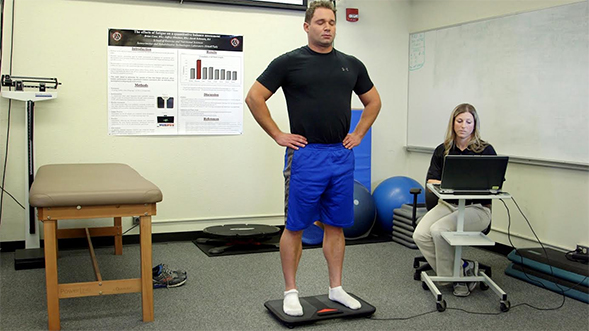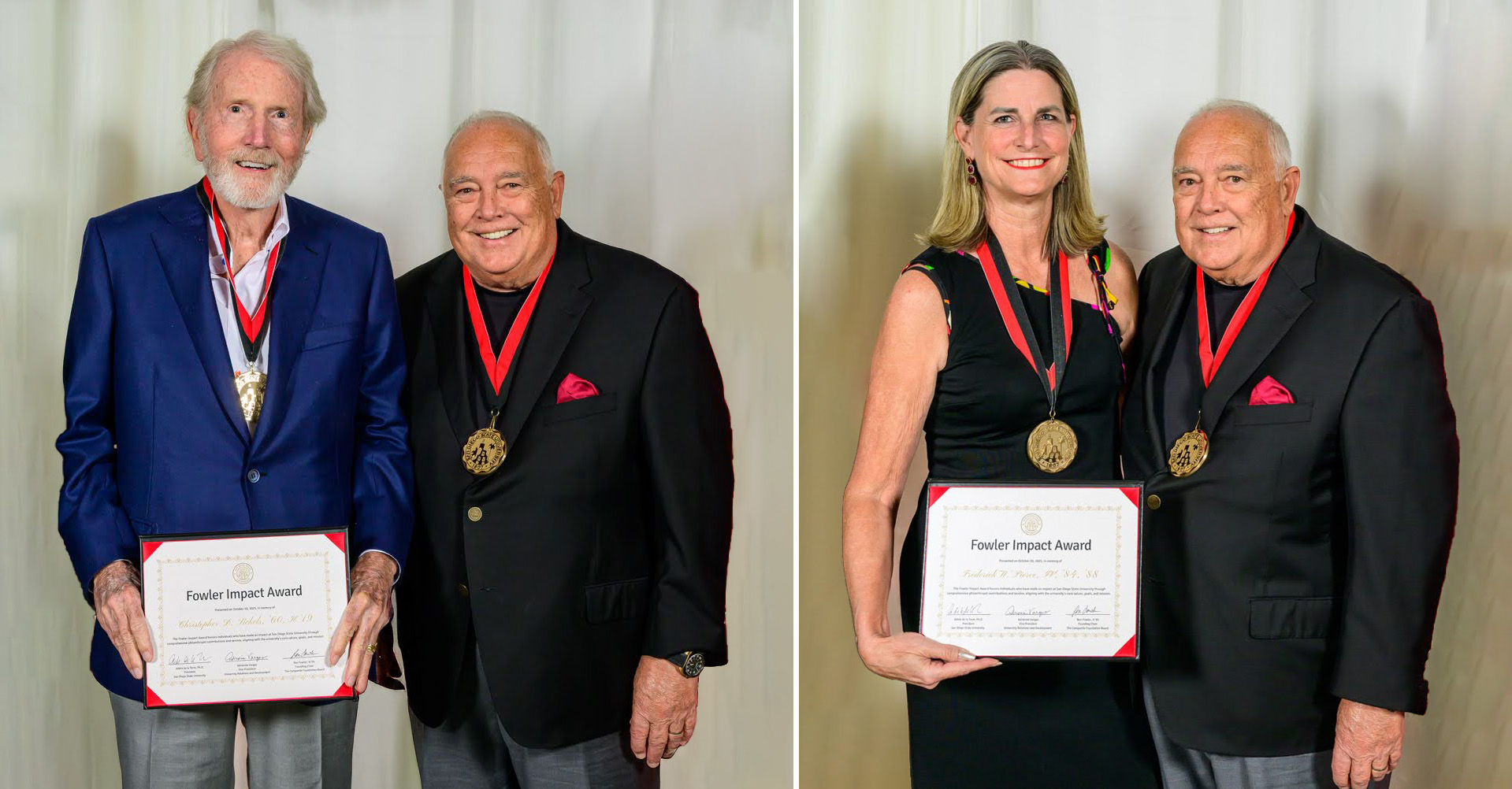Finding Balance in Concussions
A new balance testing device developed by SDSU researchers is available nationwide to help with concussion protocol.

As athletes across the nation — from pee-wee to the pros —prepare for football season, one San Diego-based company is rolling out a balance testing device that can help athletic trainers accurately assess balance as part of a team’s concussion protocol.
The device, called BTrackS, was developed by researchers out of San Diego State University, is manufactured by Balance Tracking Systems and is now available for athletic trainers, doctors and coaches serving athletes of all levels.
BTrackS can objectively assess an injured athlete’s balance to help training staff determine if the athlete may have a concussion. Measuring balance is one of the three components of concussion management – the other two being neuro-cognitive and physical-symptomatic.
“Computerized balance testing hasn’t been affordable, until now,” said Daniel Goble, an assistant professor of exercise and nutritional science at SDSU and founder of Balance Tracking Systems, Goble continued.
“We want to create an environment where every athlete in the United States receives an accurate baseline balance test. With BTrackS, that is possible.”
We are only now beginning to understand the long-term effects concussions have on athletes,” Goble continued. “It’s important to have access to reliable concussion protocols that will help coaches, trainers and parents make informed decisions.”
When an athlete is injured, they stand on BTrackS with eyes closed while the BTrackS software measures their balance by calculating the athlete’s body sway. Athletic trainers can then compare that to a previously recorded baseline measurement. This can be done on a daily basis until the athlete’s balance returns to baseline.
“Balance testing is a standard part of almost every team’s concussion protocol. Now athletic trainers and clinicians can stop using subjective visual testing and rely on BTrackS to give a computerized result in about two minutes,” Goble said. “And with a price tag under eight hundred dollars, just about any team can fit it into the budget.”
About BTrackS
BTrackS, an FDA Class 1 medical device, measures postural sway with comparable accuracy to the gold-standard force plates that are used by leading hospitals and balance centers around the world.
However, those devices cost thousands of dollars and are too expensive for most athletic programs. Therefore, most teams resort to subjective visual balance testing as part of their concussion protocol.
“The BTrackS gives us an analysis of balance that is very important in concussion management,” said Tom Abdenour, head trainer for SDSU, who has consulted on BTrackS through its development.
"We establish baseline data at the start of a season and compare it to a post-injury balance test in the event of a concussion. It is an efficient and fast test that gives us valuable data to monitor progress toward a return to competition."
Last year Goble published a paper in the Clinical Journal of Sport Medicine looking at alternatives to traditional balance testing. Using the information he learned through his research, he developed BTrackS through SDSU’s Zahn Innovation Center, a commercial and social incubator that supports SDSU innovators and aspiring entrepreneurs as they transform their ideas into companies.
He spent the last year finishing development and testing BTrackS on SDSU athletes including football, rugby, soccer and water polo players, as well as swimmers and divers.
Entrepreneurial campus
BTrackS is just one example of the entrepreneurial spirit of SDSU, which was recently named by FORBES as No. 18 on the list of America’s Most Entrepreneurial Universities among top universities including Stanford, Yale, Dartmouth and Princeton.
SDSU is committed to fostering entrepreneurial experiences for its students through The Lavin Entrepreneurship Center and The Zahn Innovation Center, as well as through a variety of classes and programs including an entrepreneurship minor open to students of all majors and a groundbreaking new Music Entrepreneurship and Business program.


